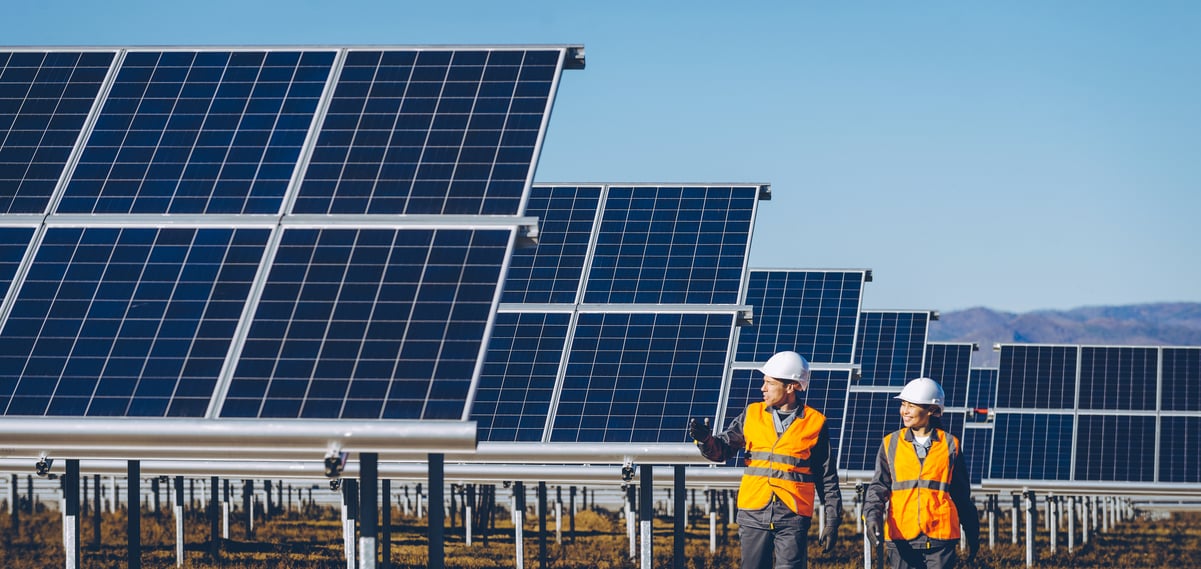The last year has been about as good as it gets for First Solar, Inc. (FSLR +3.51%). It escaped tariffs implemented by the Trump administration, laid out plans to nearly double capacity as demand surged, and benefited from strong pricing in its protected U.S. market. But the tailwinds that drove the stock may be coming to an end sooner than investors had hoped.
The competition started to rear its head in the second quarter of 2018 and that could have ramifications for the company's long-term profitability. Here are the highlights and how to look at these results.

Image source: First Solar
First Solar, Inc. results: The raw numbers
| Metric | Q2 2018 | Q2 2017 | Year-Over-Year Change |
|---|---|---|---|
| Sales | $309.3 million | $567.3 million | (45.5%) |
| Net income | ($48.5 million) | $83.0 million | N/A |
| Diluted EPS | ($0.46) | $0.78 | N/A |
Data source: First Solar, Inc. Q2 2018 earnings release.
What happened with First Solar, Inc. this quarter?
The headline numbers don't often tell the full story for First Solar, so here's a look at what investors should really be taking from the quarter.
- A lack of large project sales contributed to the drop in revenue and net income.
- Gross profit was negative 2.6% as low production and high start-up costs weighed on results. Management said throughput and yields for new production equipment were lower than expected and that contributed to the weak results.
- The biggest shock was a rapid slowdown in bookings in the second quarter. From the start of the year to April 26, 2018, First Solar booked 3,300 megawatts (MW) of future sales and in the following three months it booked just 800 MW. A huge drop in demand in June led to a rapid drop in prices, and the weak conditions look like they could last through at least the end of the year. Net cash level at the end of the quarter was $2.68 billion, a record for the company.
What can't be explained away simply by the timing of project sales or manufacturing upgrades is First Solar's reduced full-year guidance.
- Revenue guidance was narrowed by $50 million on the top and bottom end to $2.5 billion to $2.6 billion.
- Gross margin was reduced a full percentage point to a range of 20.5% to 21.5%.
- Operating income guidance was reduced from a range of $130 million to $180 million to a new range of $120 million to $160 million.
- Shipment guidance was down 100 MW to 2,800 MW to 2,900 MW.
What management had to say
Production issues will come and go, but what was most concerning for investors was the drop in demand in the second quarter. It was a direct result of China reducing solar incentives and the market quickly reacting to its newly oversupplied state by sending solar panel prices lower. CEO Mark Widmar put the market's reaction this way (transcript via Seeking Alpha): "
The near-term impact has been an almost immediate collapse and probably seen across the crystalline silicon supply chain. While we have seen planned maintenance pull forward or other actions taken to better align near-term supply with demand, there's still an oversupply across the value chain which is driving declining module ASPs [average selling price] in both China and certain international markets."
In the long term, Widmar hopes demand and pricing will pick up, but for now, there doesn't seem to be much optimism that the pace of bookings will improve in the next few quarters.
Looking forward
First Solar has about 80% of its production between now and the end of 2020 booked, so that will help stabilize results over the next two years. But it has to be concerning that falling solar panel prices will impact additional bookings and margins. First Solar isn't immune to the solar market's macro trends, and this fairly disappointing earnings report was a reminder of that.






